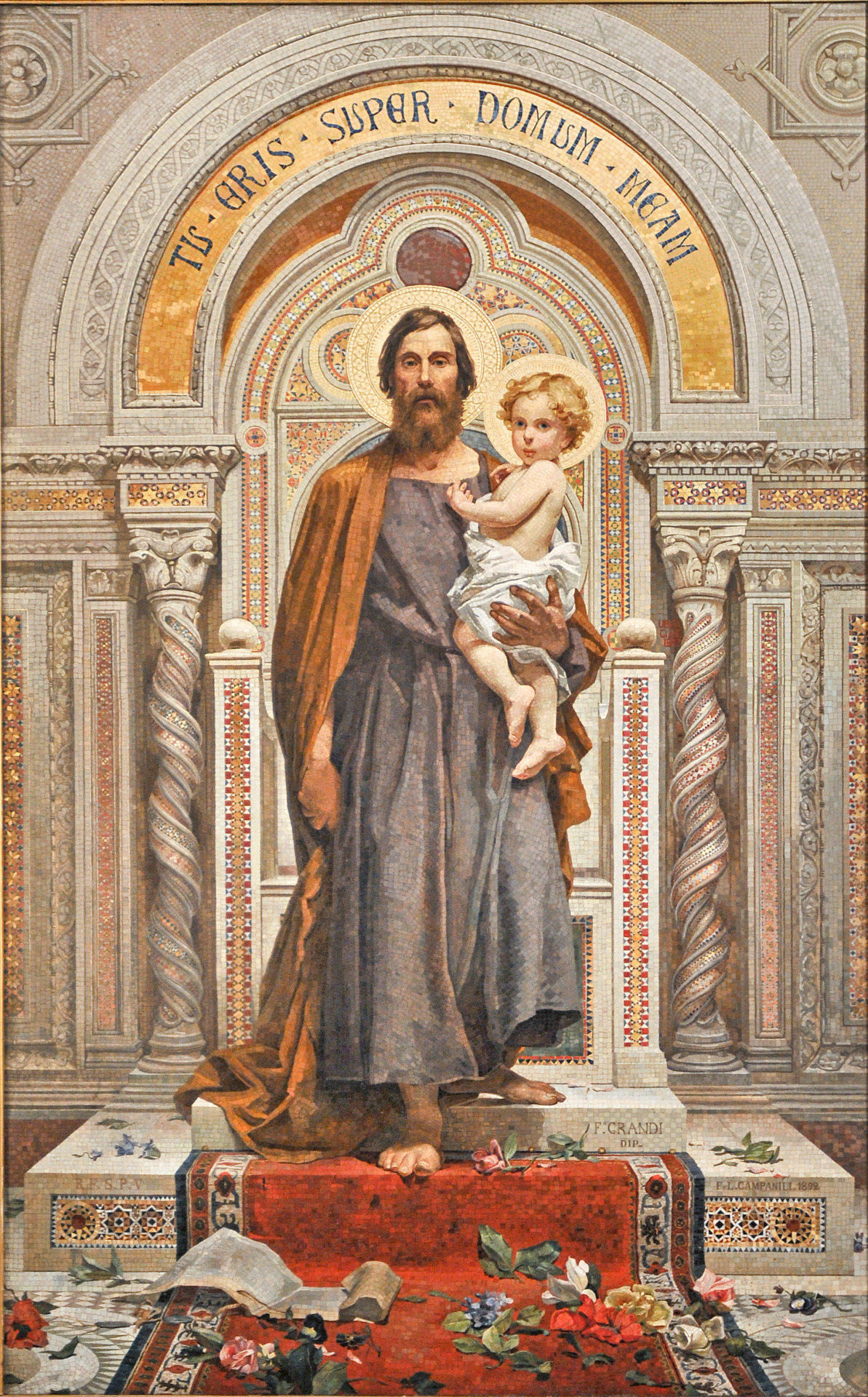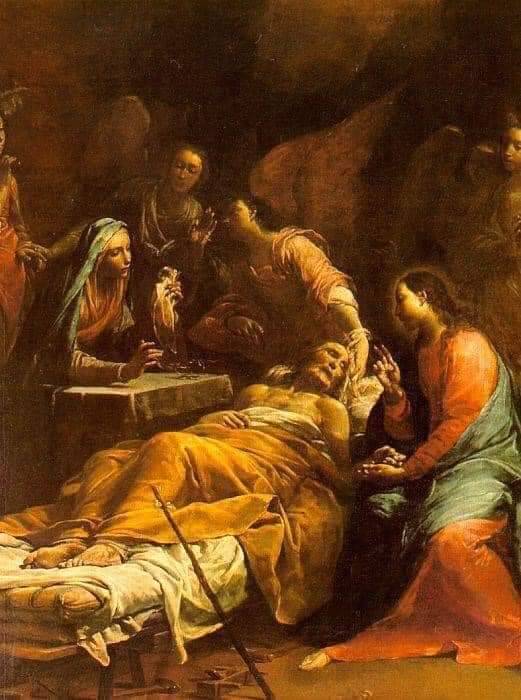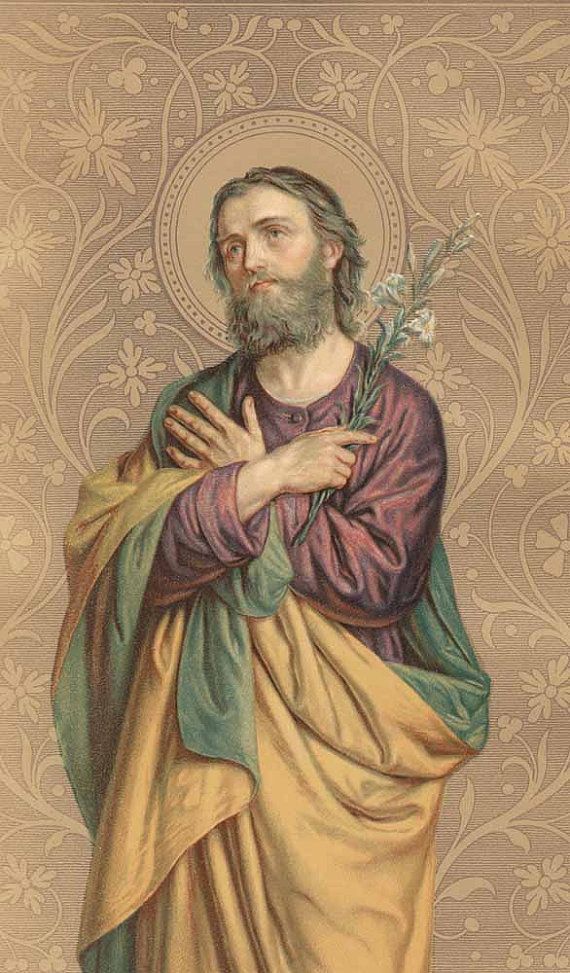It has always been believed that Saint Joseph died some time before
Our Lord’s Passion. The Virgin-Father of Our Lord breathed forth his
last surrounded by Jesus and Mary, and thus became the patron of a holy
death. Whereas the most holy Virgin was predestined to participate
directly and most closely in the Passion of Our Lord — so much so that
she earned the title Co-Redemptrix — not so, Saint Joseph. To speak,
then, of “The Passion of Saint Joseph” is to consider something other
than the great carpenter’s direct participation in the events of Good
Friday.
While his body and soul awaited their reunion — the former in the
tomb and the latter in the Limbo of the Just — Saint Joseph’s
foreknowledge and influence both made him an indirect but very real participant in the drama of our redemption.
To Saint Joseph was given a foreknowledge of Our Lord’s Passion. In
1956, the Patriarch himself revealed this to the visionary, Sister Mary
Ephrem Neuzel, as part of the revelations of Our Lady of America:
“My heart suffered with the Hearts of Jesus and Mary. Mine was a
silent suffering, for it was my special vocation to hide and shield, as
long as God willed, the Virgin Mother and Son from the malice and hatred
of men.
“The most painful of my sorrows was that I knew beforehand of their passion, yet would not be there to console them.
“Their future suffering was ever present to me and became my daily
cross. I became, in union with my holy spouse, coredemptor of the human
race. Through compassion for the sufferings of Jesus and Mary I
cooperated, as no other, in the salvation of the world.”
If his foreknowledge of Our Lord’s terrible sufferings made him
participate actively, albeit indirectly, in the Passion, his influence
made him also a unique passive participant. For potencies that
Saint Joseph had carefully fashioned for many years were put into act
long after his death as his son “trod the winepress alone” (Is. 63:3).
Parents often observe each other’s features in their offspring. “You
look just like your mother when you do that,” or some such thing, is
commonly uttered — evoking either a pleasant or a painful correspondence
between spouse and child. Jesus, naturally, looked very much like Mary,
having received, as He did, all of His genes from her, and none from
her husband.[1]
But genes are not all that goes into a child. Whether we call it
education, discipline, or training, the multi-faceted art of
child-rearing impresses as much or more of the parent onto the child as
do the data contained on the double helix of DNA. Personality or
temperament are already determined at birth (of this I am reasonably
confident), but character is formed by upbringing. As Saint Joseph was
truly father to Our Lord in every conceivable way other than the
strictly biological, he was, with Mary, responsible for Jesus’
upbringing, that is, the formation of His very unique character. As a
father in Israel, he had the duty to foster an environment of respect,
love, piety, and religious observance in the home. Head of the Jewish
“domestic Church” of the Holy House, he dutifully performed certain
household religious ceremonies at which Jesus assisted. As a poor
artisan, Joseph also had the duty of teaching Our Lord a trade, and that
an arduous one. In this light, we can consider what Saint Paul meant
when he wrote to the Hebrews that “whereas indeed he was the Son of God,
he learned obedience by the things which he suffered” (Heb. 5:8).
Finally, as the male parent of the Boy, Saint Joseph was particularly
responsible for imparting the masculine character that the Son of God
would bring to His mission to save our race.
In a word, Our Lord’s practice of manly virtue was an icon that had been painted by Saint Joseph. (Read more.)






















